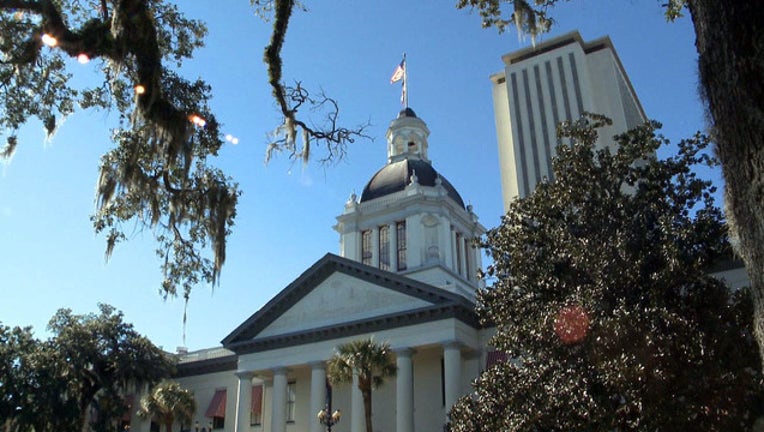Legislative leaders bank on reserves to weather storm

TALLAHASSEE, Fla. - Legislative leaders maintain the state has enough money in reserves to get through the initial economic hit from COVID-19, as Florida Chief Financial Officer Jimmy Patronis wants state analysts to quickly update revenue forecasts.
The Senate and House issued statements Monday reiterating that nearly $4 billion in reserves included in a fiscal 2020-2021 budget approved Thursday should help get the state through the crisis.
“We are being proactive and vigilant, closely monitoring the developing impacts COVID-19 is having on our economy and state revenues,” Senate President Bill Galvano, R-Bradenton, said in a statement. “I have been working with (the Legislature’s Office of Economic and Demographic Research) and our Senate staff to gain a better understanding of the data and associated timelines required for various components of our consensus estimates. Estimates cannot be formally adjusted until the needed data becomes available over the next several months. In the meantime, our state is well-served by the $4 billion reserve set aside during the 2020 session.”
On Friday, Patronis wrote a letter calling for the state Revenue Estimating Conference to convene “to ensure there is sufficient revenue” to pay for the upcoming 2020-2021 fiscal year, which starts July 1.
“The financial projections for our state have dramatically changed from what they were at the beginning of the FY 2021 budget-making process,” Patronis said in the letter addressed to Gov. Ron DeSantis and copied to Galvano and House Speaker Jose Oliva, R-Miami Lakes. “Our current year budget (2019-2020) is also likely to be affected by the mass shutdown and closures forced by COVID-19.”
The Revenue Estimating Conference is made up of analysts representing the governor’s office, the House, the Senate and the Office of Economic and Demographic Research.
The conference meets periodically throughout the year to update estimates of general revenue, which plays a key role in funding schools, health care and prisons.
House spokesman Fred Piccolo said in an email Monday that “there isn’t a call (for the Revenue Estimating Conference) because no one expects it to be good, but we have enough in reserves to cover our sales tax losses for a few months.”
Lawmakers put an additional $300 million into reserves in the new budget to brace for the effects of the outbreak of the highly contagious and deadly virus, with the state’s three major reserve funds totaling about $3.9 billion.
DeSantis’ office didn’t immediately respond to a request for comment Monday.
Not everyone is confident the state will have enough money on hand to cover the loss of tax revenue as businesses from international tourist draws to local restaurants and bars have been shuttered to slow the spread of the virus.
Numerous lawmakers raised the possibility of needing to hold a special session before they voted to approve the new $93.2 billion budget Thursday.
Also, Florida State University President John Thrasher told the university's trustees during a conference call Monday morning that he thinks there will be a special session at some point.
"Truthfully, it's going to impact us (the university)," said Thrasher, a former state House speaker and senator. "I have no doubt about it."
Meanwhile, the National Federation of Independent Business released a survey Monday that said 76 percent of small businesses reported they have been negatively impacted by the coronavirus.
“The magnitude of disruption now on the small business sector is profound,” the small-business organization said in a news release.
About a quarter of small businesses reported being negatively impacted by the coronavirus in a similar survey earlier in March.
“The outbreak will leave few if any owners unscathed,” the release said. “We know the economic impact will be immense, and now, the question is how long will it last and how quickly can the small business sector recover once on the other side. Small business owners are anxious to seek clarity to both questions.”
The fiscal 2020-2021 budget was initially crafted following a January update from the Revenue Estimating Conference that indicated an uptick in the revenue forecast. The outlook came even with an expected slowdown on the horizon as housing and construction numbers were expected to further weaken.
The January economic forecast also noted outside risks, such as the ongoing economic expansion reaching a “mature stage” and pressures to global growth, a summary of the economists’ conclusions said.
The uptick reflected the state seeing higher-than-anticipated revenues in the first months of the current fiscal year, which started July 1. About 40 percent of the gains were tied to corporate income tax receipts.
--- News Service Executive Editor Jim Saunders contributed to this report.

